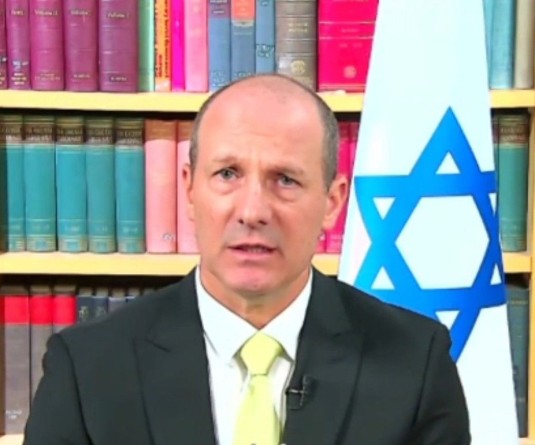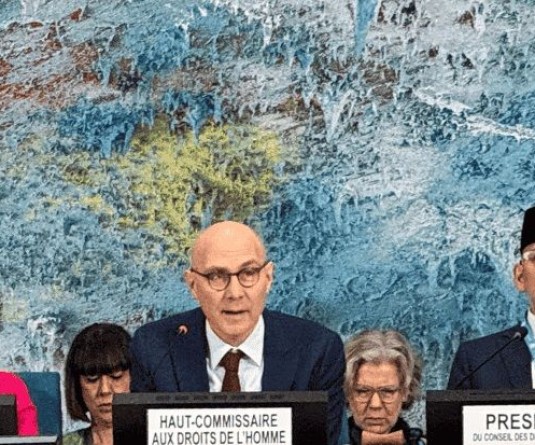Hong Kong Chief Executive Carrie Lam speaks during a news conference in Hong Kong, China on May 26. (REUTERS Photo)
HONG KONG, May 26 (Reuters): Hong Kong leader Carrie Lam said on Tuesday that Beijing's proposed national security laws would not trample on the city's rights and freedoms and called on citizens to wait to see the details of the legislation.
Lam added her voice to an unprecedented barrage of statements by Beijing and local officials, and former city leaders defending the legislation and seeking to reassure residents, investors and diplomats about Hong Kong freedoms.
"There is no need for us to worry," Lam told a regular weekly news conference.
Like others supporting the legislation, she did not explain how the freedoms that Hong Kong enjoys will be upheld.
"In the last 23 years, whenever people worried about Hong Kong's freedom of speech and freedom of expression and protest, time and again, Hong Kong has proven that we uphold and preserve those values," she said.
"The best thing is to see the legislation in front of us and to understand why at this point in time Hong Kong needs this piece of legislation."
According to a draft proposal last week, the legislation aims to tackle secession, subversion and terrorist activities. It could see Chinese intelligence agencies set up bases in one of the world's biggest financial hubs.
MORE PROTESTS
Thousands poured onto the streets of Hong Kong on Sunday in a mass protest against the laws. Police fired tear gas and water cannons to disperse the crowd and arrested almost 200 people.
It was the first major protest since pro-democracy demonstrations rocked Hong Kong last year over an unsuccessful plan to introduce an extradition law with China. The unrest plunged the former British colony into its worst crisis since its return to Chinese rule in 1997.
More protests are expected in Hong Kong on Wednesday, against both national security laws and a bill due for a second reading in the city's legislature that would criminalise abuse of China's national anthem.
As many Hong Kong people fret about national security laws, demand for virtual private networks surged six-fold last Thursday, the day the plans were unveiled.
The United States, Britain, the European Union and others expressed concerns about the laws and Washington warned Hong Kong could lose the preferential treatment that makes it a vibrant interface between communist China and the West.
Investors' concerns were evidenced in a sell-off on the Hong Kong bourse on Friday, though stocks regained some ground this week, with analysts pointing to global factors rather than the flurry of recent statements.
"Medium-to-long term it will still depend on U.S.-China relations and the political situation in Hong Kong," said Steven Leung, executive director for institutional sales at brokerage UOB Kay Hian.
GARRISON SUPPORT
The commander of China's military Hong Kong garrison said in a rare interview that the garrison firmly supported the new legislation. Chen Daoxiang told Chinese state television the garrison had the determination and ability to safeguard national sovereignty and the city's long-term prosperity and security.
The garrison did not confront protesters last year.
Hong Kong is governed under a "one country, two systems" formula that guarantees it a high degree of autonomy and freedoms not seen in mainland China, including freedom of expression and the right to protest.
Beijing and local officials have toughened their rhetoric recently, describing some of the acts in the protests as "terrorism" and attempts of "secessionism," remarks echoed by Lam on Tuesday.
Protests turned increasingly violent last year.
While authorities scrapped the bill that sparked the unrest, they dug in their heels against calls for universal suffrage, amnesty for those arrested, an independent inquiry against police's handling of the demonstrations and a request not to label the protests as riots.
Opinion polls show only a minority of Hong Kong people support independence, which is anathema to Beijing.






